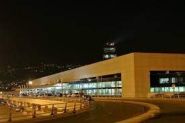
The Eid al-Fitr holidays, traditionally a time for family gatherings and a surge in tourism across Lebanon, were overshadowed by recent Israeli airstrikes on Beirut’s southern suburbs. While tourist areas were largely unaffected, the attacks created an atmosphere of uncertainty that dampened the festive spirit and hindered the long-awaited recovery of the tourism industry.
Despite the psychological impact of the airstrikes, Ramzi Salman, the President of the Lebanese Guesthouses Syndicate, told This is Beirut on Tuesday that the Eid al-Fitr weekend saw a significant influx of visitors. According to Salman, guesthouses experienced relatively strong bookings, highlighting the sector’s resilience amid the ongoing crisis.
However, Jean-Claude Hawat, the President of the Tourist Guides Syndicate in Lebanon, noted that some tourists – particularly those from Europe and the Arab world – had postponed their trips to Lebanon following the Israeli airstrikes last Friday. On that day, at the start of the Eid weekend, Israel launched an airstrike on a building in Hadath, followed by another strike late Monday night into Tuesday in Haret Hreik.
Although these attacks did not directly disrupt the Eid celebrations, they have introduced a new layer of uncertainty surrounding the country’s security, especially for potential tourists.
Regarding bookings, Jean Abboud, the President of the Association of Travel and Tourist Agents in Lebanon (ATTAL), reassured that there had been no significant changes. Airlines have continued flights to Beirut’s Rafic Hariri International Airport, with Fly Emirates even adding a daily flight from Dubai starting Tuesday.
The ongoing conflict remains a significant concern for Lebanon’s hotel sector. Pierre Achkar, the Head of the Lebanese Federation For Tourism Industries and the Syndicate of Hotel Owners, told This is Beirut that the hospitality industry has been significantly impacted. While some Beirut hotels saw occupancy rates as high as 80% during the Eid holidays, others only reached 60%. In contrast, hotels outside the capital remained virtually empty.
Achkar also explained that to cover operational costs, hotels need an occupancy rate of at least 30-50% throughout the year. Many establishments are struggling to meet this threshold, leaving their financial situation precarious. He lamented the ongoing tourism embargo on Lebanon and stressed the urgent need for the Lebanese government to implement UN Security Council Resolution 1701 and lift regional and international restrictions on the tourism sector.
The restaurant industry has not been spared either. Khaled Nazha, the Vice President of the Syndicate of Restaurants, Cafés and Nightclubs Owners in Lebanon, stated that the airstrikes on Dahyeh have negatively impacted restaurant activity. Nonetheless, he remains optimistic, hoping that the Easter holidays and the upcoming summer season will offer a much-needed recovery. Nazha believes lifting the restrictions that prevent Arab tourists from visiting Lebanon could be key to this rebound and anticipates a stronger turnout in the coming months.
Although the Eid holidays provided a brief respite, the threat of further conflict continues to cast a shadow over the future of Lebanese tourism. Lebanon, though resilient, must overcome these obstacles to reclaim its place on the international tourism map. The path forward lies in reconciling security stability with economic recovery, so Lebanon can once again thrive, free from the constant shadow of war.




Comments